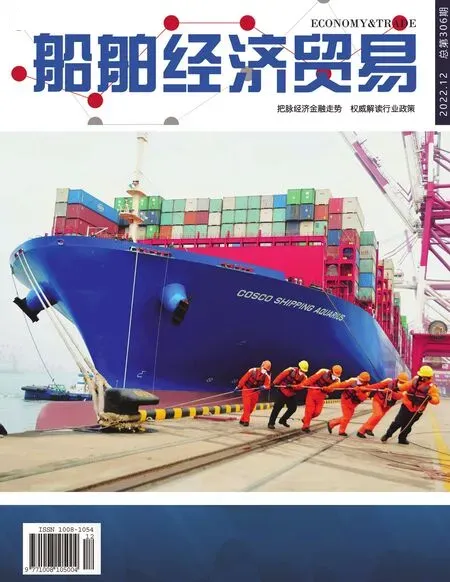What Ships Would Use CCS?
Li Qin
With the international community's growing attention to climate issues,the research and application of carbon capture and storage (CCS) technology is increasingly heating up, and CCS has found application on board, and become a branch of the ship decarbonization path. However, at present, the largescale commercial application of CCS awaits debottlenecking. For ship decarbonization, CCS may only be just a“band-aid” solution unrelated to the overall situation, at least for now.
Whether a faily mature technology can achieve commercial success requires at least two passes, one is safety, the other is cost. The selection of many ship decarbonization technologies is actually based on the two major factors. As a low-carbon or zerocarbon fuel, nuclear fuel is the cleanest and has the lowest operating cost, but any leakage will cause safety disaster.Hydrogen fuel is also a zero-carbon fuel, but there are insurmountable difficulties in terms of safety and cost.Methanol, ammonia and other fuels are only one step away from the real ship application because they meet commercial standards in terms of safety and cost. As for the much-talked-about availability of alternative fuels, it is ultimately a matter of cost.

CCS technology is another way in additon to alternative fuel in the ship decarbonization scheme, and also another idea. If alternative fuel technology is aimed at avoiding carbon generation at all, then CCS is designed to deal with the carbon generated. Some people in the industry regard it as a transition option similar to LNG, but is CCS really capable of playing such a role? In fact, CCS technology has been developing for nearly 50 years. Data show that by the middle of 2021, there were only about 30 large CCS projects in operation in the world, locking in 4 million tons of carbon dioxide per year, accounting for only 0.1% of global emissions. A significant part of this receives financial support from national or non-governmental organizations and enterprise groups, and it is difficult to achieve large-scale commercialization,let alone profitability. CCS involves huge investmente, and the return cycle is unusually long, because the carbon dioxide capture has not found much use and the value produced is limited. This is the difficulty to be encountered by the application of CCS on board. In addition,the huge size of the CCS device leads to the loss of cargo space. According to industry experts, the container space loss caused by installing the CCS device for a 14000 TEU container ship is about 470 TEU, which is absolutely a damage to the interests of the ship owner. In this sense, using the CCS on board may be an unsustainable solution.

Meanwhile, although business is business, the owner cherishes other considerations than business in choosing the ship decarbonization scheme. Compared with alternative fuels, the CCS scheme is tied to fossil fuels, and relatively high polluting fossil fuels are thrown in an awkward position in the environment of preventing climate warming. Will the CCS scheme encourage the continued use of fossil fuels as oil? This would also be a shipowner’s consideration. Although alternative fuels are expensive, aren’t they more reliable than the CCS solution? Once the alternative fuel solution is successful, it will get people out of their dependence on fossil fuels more quickly and decarbonize it more deeply, more thoroughly and more sustainably. This will undoubtedly tilt the balance toward alternative fuels when choosing ship decarbonization.
Fortunately, just like the response to the IMO desulfurization regulations,shipowners will not “put their eggs in one basket”. CCS embarkation should serve as a supplementary plan for the decarbonization of ships,which is worth studying and trying.What's more, the rapid development of science and technology will create infinite possibilities. Above all, the computing power of the computer used by the Apollo lunar spacecraft was less than that of an ordinary mobile phone now, so the emergence of subdisruptive innovation may also make CCS ship embarkation into a cost-effective solution to decarbonize ships. However, for the enterprises that intend to deeply practice and achieve commercial success in the ship CCS realm, they must weigh the advantages and disadvantages and understand its variables, and make a rational decision.


